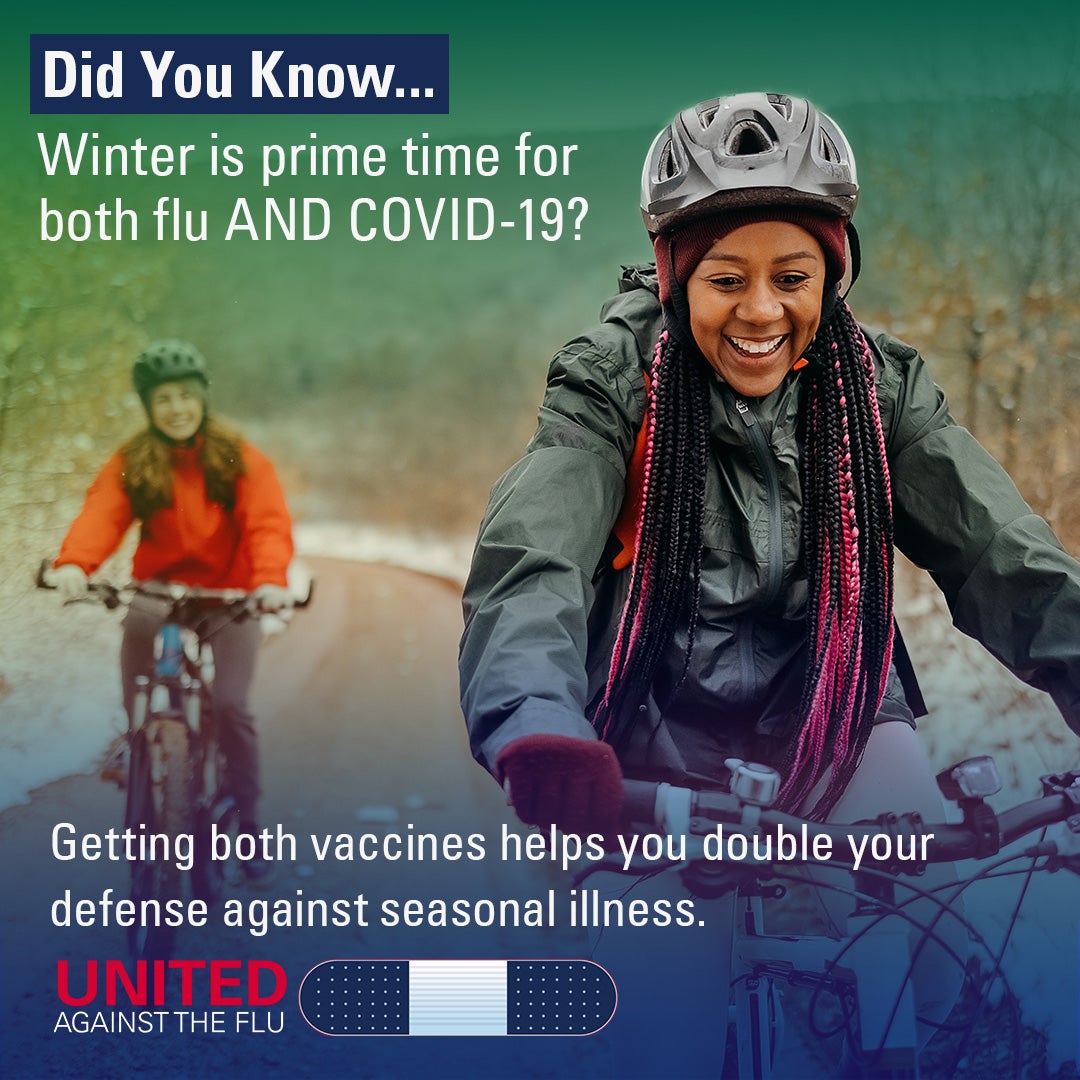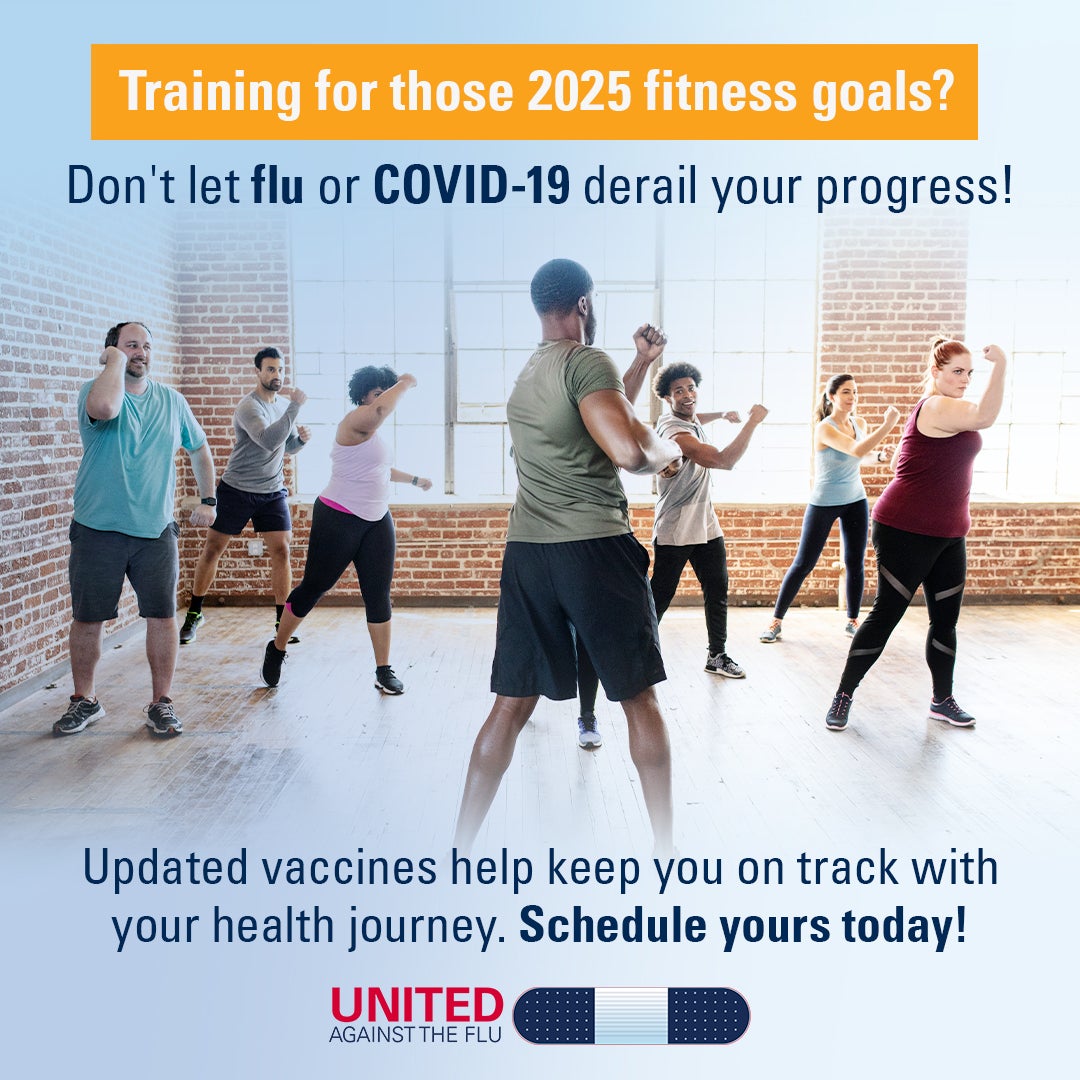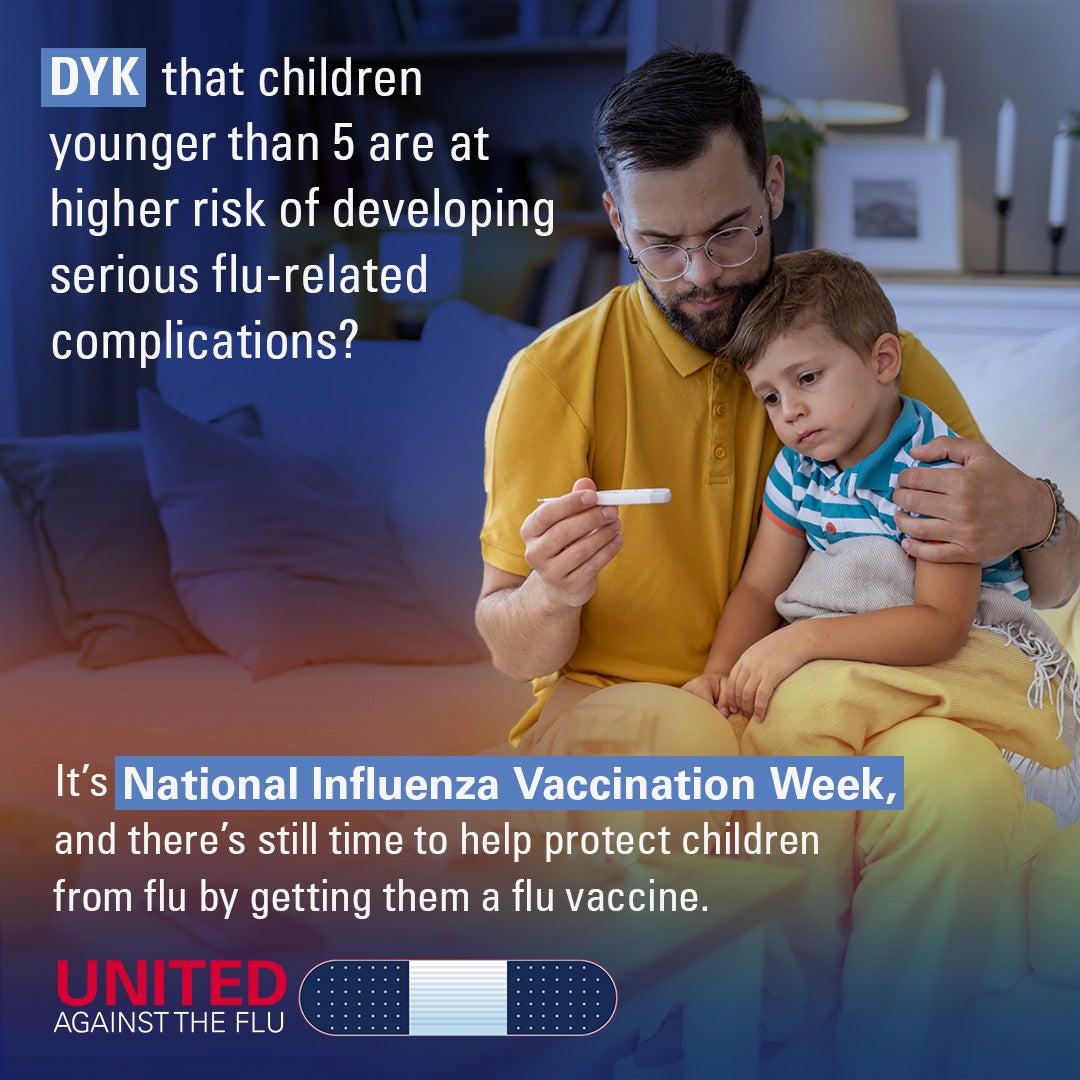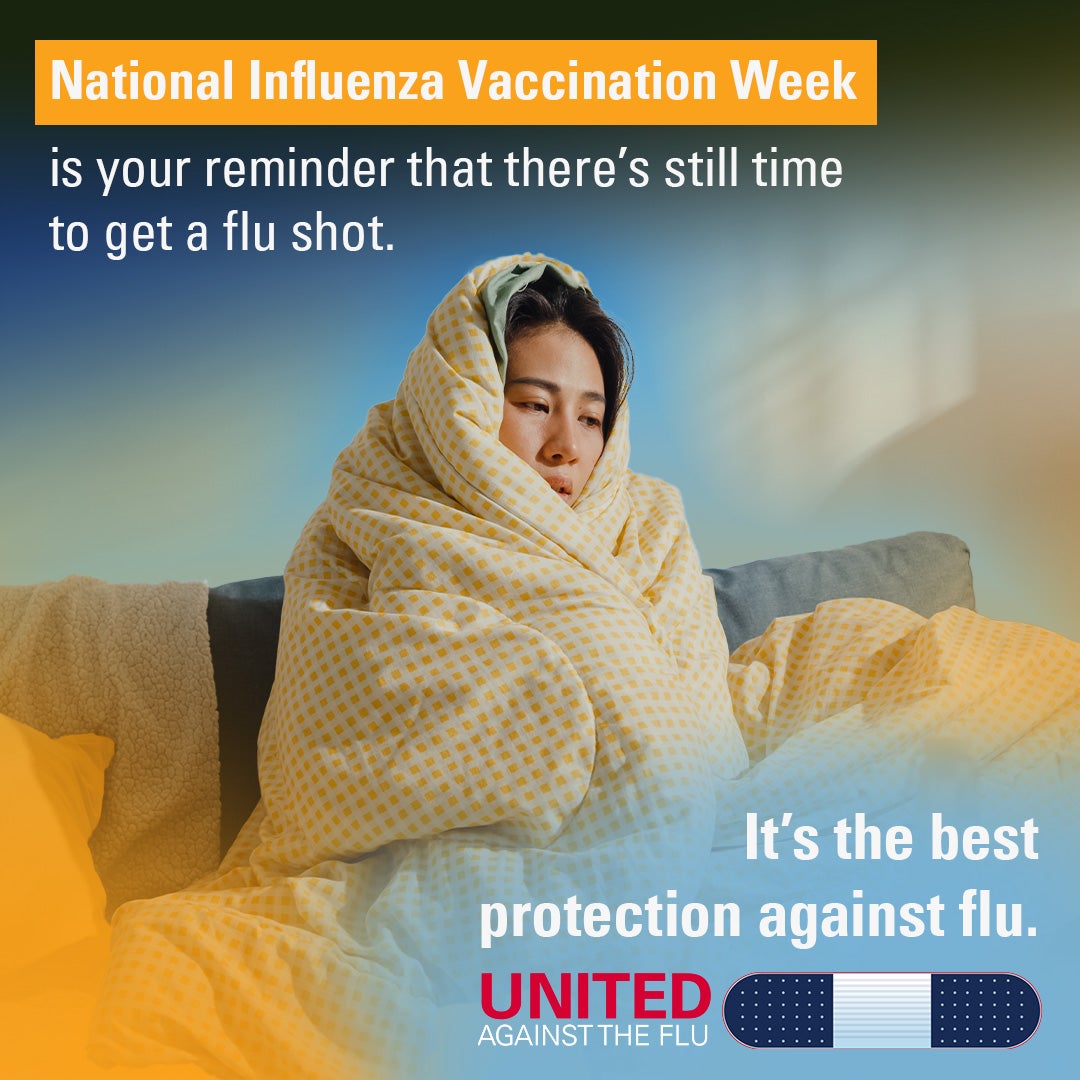United Against the Flu

National health care organizations want everyone to be healthy and know the importance of getting vaccinated against the flu.
The flu attacks the lungs, nose, throat, and the immune system. The most important step you can take to avoid serious, flu-related illnesses is to be vaccinated.
Join United Against the Flu

2022-23 BY THE NUMBERS
Flu Illnesses
35,000,000+
Flu Hospitalizations
400,000
Deaths
21,000

Who needs a flu vaccine?
Almost everyone. The CDC recommends that anyone 6 months of age and older get vaccinated, particularly people who are at a high risk for flu complications. This includes people 65 years and older, young children and people with chronic conditions such as asthma or heart disease. Individuals who care for or live with these high-risk populations also should get vaccinated.

When Should You Get the Flu Vaccine?
Flu is most common in the fall and winter. For most people, September – October is a good time to get the vaccine, though children and people in their third trimester of pregnancy may want to get it earlier.
COVID-19 and Flu Virus What you need to know
According to the CDC, flu and COVID-19 are both contagious respiratory illnesses, but they are caused by different viruses. Both can spread from person-to-person, and the CDC recommends social distancing, frequent hand-washing and the use of cloth face masks to mitigate infection. Because some of the symptoms of Flu and COVID-19 are similar, testing may be needed to help confirm a diagnosis. You can learn more about other key differences and the most recent available information on COVID-19 and the flu here.
You can get the flu shot and the COVID-19 vaccine, even in the same visit.
1 or multiple days can pass from when a person becomes infected with COVID-19 or flu to when they start to experience symptoms of illness.
A person infected with the flu can experience symptoms for 1-4 days after infection. A person infected with the COVID-19 virus can experience symptoms for 2-14 days after infection.
Most people with the flu are contagious for about 1 day before they show symptoms. Older children and adults with flu appear to be most contagious during the first 3-4 days of their illness, but many people remain contagious for about 7 days. Infants and people with weakened immune systems can be contagious for even longer.
How long someone can spread the COVID-19 virus is stilling being studied, but we are able to provide information on prior variants. On average, people can begin spreading the COVID-19 virus Delta variant 2-3 days before their symptoms begin, but infectiousness peaks 1 day before their symptoms begin. On average, people can continue to spread the COVID-19 virus Delta variant another 8 days after their symptoms began.
The COVID-19 virus and flu can spread from person to person between people who are in close contact with one another. Both are spread mainly by particles containing virus that are expelled when people with the illness (COVID-19 or flu) cough, sneeze, or talk. These particles can land in the mouths or noses of people who are nearby and possibly be inhaled into the lungs. Although most spread is by inhalation, it may be possible that a person can get infected by touching another person (for example, shaking hands with someone who has the virus on their hands), or by touching a surface or object that has virus on it, and then touching their own mouth, nose, or eyes. Both flu viruses and the virus that causes COVID-19 can be spread to others by people before they begin showing symptoms; by people with very mild symptoms; and by people who never experience symptoms (asymptomatic people).
At the moment COVID-19 virus is more contagious than the flu virus.
The flu virus vaccine is developed annually to protect against 4 flu viruses that scientists expect will circulate each year.
The four different COVID-19 vaccines authorized for approval are Pfizer-BioNTech, Moderna, Novavax, and Johnson & Johnson's Janssen. The preferred vaccines are Pfizer-BioNTech or Moderna. Both vaccines provide you the strongest protection against new variants from the COVID-19 virus.
Share the Importance of Getting Vaccinated
*Data and information sourced from the Centers for Disease Control and Prevention
*For consideration, the receipt and adequacy of which I acknowledge, I grant to the American Hospital Association, its affiliates, subsidiaries, officers, directors, shareholders, and their respective licensees, successors, assigns, legal representatives, agents and heirs (collectively, “AHA”), the transferable, irrevocable, sublicensable, perpetual, nonexclusive and worldwide right to use my image, name, photograph, voice, persona, likeness or other personal identifying characteristics in all forms of media now known or hereafter developed (collectively, my “Image”) in connection with United Against the Flu and for such other purposes as AHA deems appropriate. The AHA reserves the right to refuse the usage of partner name and logo.I waive the right to inspect or approve any materials incorporating my Image, as well as my right to royalties or other compensation for the use of same. I also waive any claim to any intangible rights, including (but not limited to) the right of publicity or copyright, in connection with any tangible medium of expression incorporating my Image created and/or used by AHA. In addition, I release and hold harmless AHA from any claims and/or liabilities arising out of or in connection with AHA’s use of my Image. I represent that I am at least eighteen (18) years of age.











